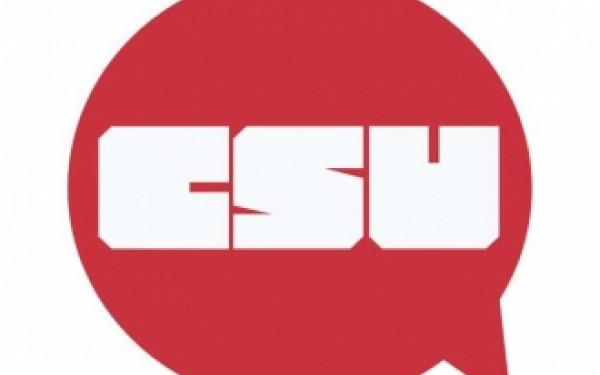How We Voted
A Breakdown of the Numbers
Update: After a recount of the presidential votes that took place on March 27, Schubert Laforest has been confirmed the CSU president-elect by a margin of 31 votes, gaining 757 votes over Melanie Hotchkiss’ 726 votes.
“The recount went smoothly and there were no problems,” said CSU CEO Ismail Holoubi in an email to The Link.
After a relatively quiet two weeks of campaigning, which were largely overshadowed by striking students, the entire A Better Concordia executive slate, fronted by presidential candidate Schubert Laforest, was victorious in this year’s Concordia Student Union general election.
“It was very interesting, and a very emotional moment, and we’re really happy about it,” said Laforest. “I was relatively surprised that all of [A Better Concordia] got in, just by the nature of the electoral system in that you can each be elected individually.”
Due to an extremely close vote—Laforest won by 28 votes—a recount set to take place March 27 is required to confirm his victory over Concordia Could Be’s Melanie Hotchkiss. “We had to have an automatic recount according to CSU regulations,” said CSU Chief Electoral Officer Ismail Holoubi.
CSU bylaws state that if the vote differential is fewer than 50 votes, or less than five per cent, then an automatic recount takes place.
The New System
After abolishing the slate system in the November referendum, this was the first time in the history of the CSU where executives and councillors ran entirely unaffiliated.
Approximately a quarter of the amount of votes were cast this year in comparison to last year’s election, as roughly 1,500 ballots were cast this year.
“It’s always hard for the first year. This is uncharted territory and people are more reluctant to go out on a limb,” said Laforest. “It’s still too early to tell if this system has been a success or a failure, but I think we will be able to see that once governance starts happening next year.”
Though the change in bylaws may have played a role in the low turnout, Holoubi believes the entire climate surrounding Concordia undoubtedly had an effect on the 2012 elections.
“We had a change in bylaws, unaffiliated councillors running, we had a strike taking place during the elections, and a change of day of the elections,” said Holoubi. “It’s kind of hard to say what the main cause [for the low voter turnout] was.”
Laforest agreed, noting that this year’s campaigning period saw many firsts for Concordia, apart from the change in bylaws.
Checking In With Schubert
In the interim, Laforest says he is already speaking with the current CSU, and plans to meet extensively with his executive to start planning how to integrate their platform.
“I’m dedicated to this and have come to terms with the fact that I’ll be giving a year of my life to the CSU,” says Laforest. “This is my priority.”
Laforest’s victory came after he, along with A Better Concordia VP Academic and Advocacy candidate Lucia Gallardo, were reinstated on March 16 by the CSU Judicial Board.
The two international students had been disqualified by Holoubi after issues with their paperwork had resulted in them not showing up as registered students during the verification process.
When We Voted
Laforest felt that the strike had a very large and very necessary role to play in these elections.
“The elections weren’t as out-there and in people’s faces as they are notoriously known to be,” said Laforest. “However, that doesn’t bother me because I really think that this strike dialogue is the most important dialogue that needed to be happening, something that Concordia students needed to address.
“It was hard to campaign because often times we’d go to do classroom speeches and the classes would either be empty, or there would be no class, or hard picket lines. We really had to adapt to the climate.”
As a CSU Councillor candidate last year, Hotchkiss received almost twice as many votes than she did this year while running for the presidential position.
“Looking at the results of this election, not in terms of who got elected but in terms of the actual numbers, I think it’s really sad to see the low voter turnout this year,” said Hotchkiss. “It’s completely unacceptable, as far as I’m concerned.”
Where We Voted
Despite the low turnout, Hotchkiss beat Laforest at every polling station except for the John Molson School of Business Building and the combined stations at the Loyola campus.
“In a sense, it is to be expected, because [Hotchkiss] had a full team and they were all hands on deck,” said Laforest. “They basically campaigned their hearts out in all these buildings, so that doesn’t really surprise me.”
At MB however, Laforest beat Hotchkiss by approximately 100 votes.
“I don’t really know what to make of these results, but it’s disappointing,” said Hotchkiss. “I know the effort was put there. That was a building that I spent a lot of time in.”

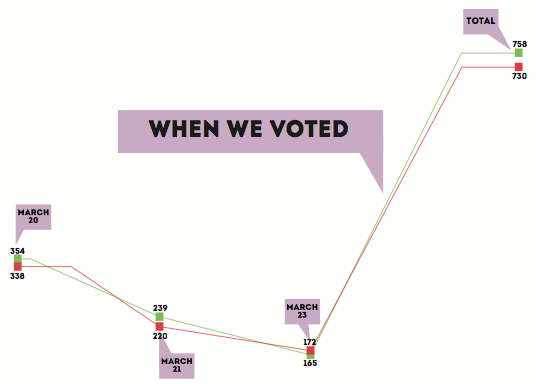
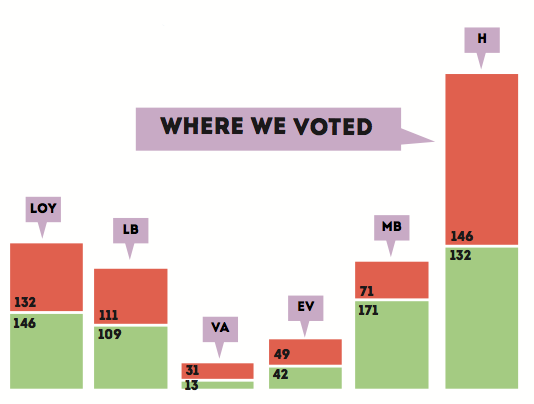
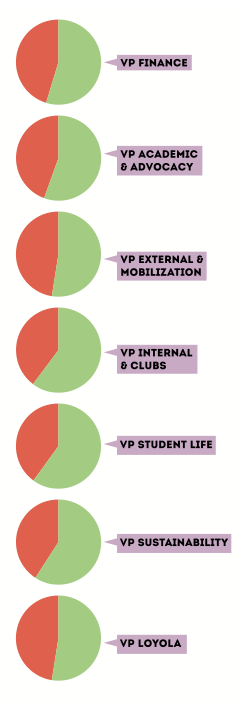



2_600_375_90_s_c1.jpg)
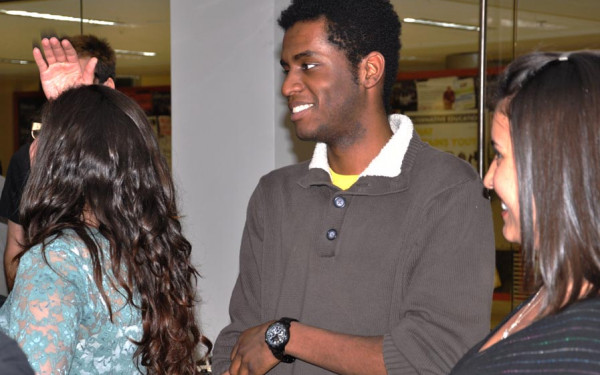
_600_375_90_s_c1.jpg)
